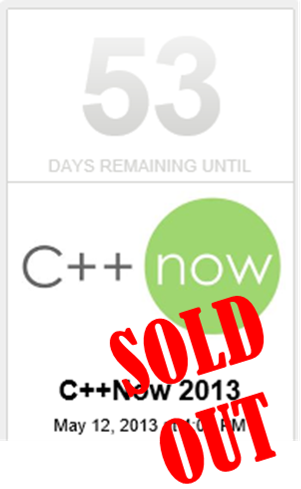GCC's Move to C++ -- Linda Jacobsen
 It's nice to see more C++ compilers being written in C++ rather than C. The Clang compiler is already all-C++. In recent years GCC has been slowly doing the same -- first compiling the C code as C++ code, and more recently using C++ itself.
It's nice to see more C++ compilers being written in C++ rather than C. The Clang compiler is already all-C++. In recent years GCC has been slowly doing the same -- first compiling the C code as C++ code, and more recently using C++ itself.
Here is a readable summary of progress to date.
GCC's Move to C++
by Linda Jacobsen
Excerpt:
In 2008, 2009, and 2010, (i.e., at the beginning and after each milestone) Taylor provided formal plans for the next steps. There is no formal plan going forward from here. People will use C++ constructs in future patches as they deem necessary, but not just for the sake of doing so. Some will limit their changes to the times when they are patching the code anyway. Others approach the existing C code with an eye to converting code to C++ wherever it makes the code clearer or more efficient. Therefore, this is an ongoing effort on a meandering path for the foreseeable future.


 As noted yesterday, the C++ Now 2013 conference has sold out well in advance. There's one other conference that sold out almost immediately we should also mention:
As noted yesterday, the C++ Now 2013 conference has sold out well in advance. There's one other conference that sold out almost immediately we should also mention: As interest in C++ continues to increase, not only are we seeing more C++ events, but they're selling out quickly.
As interest in C++ continues to increase, not only are we seeing more C++ events, but they're selling out quickly.